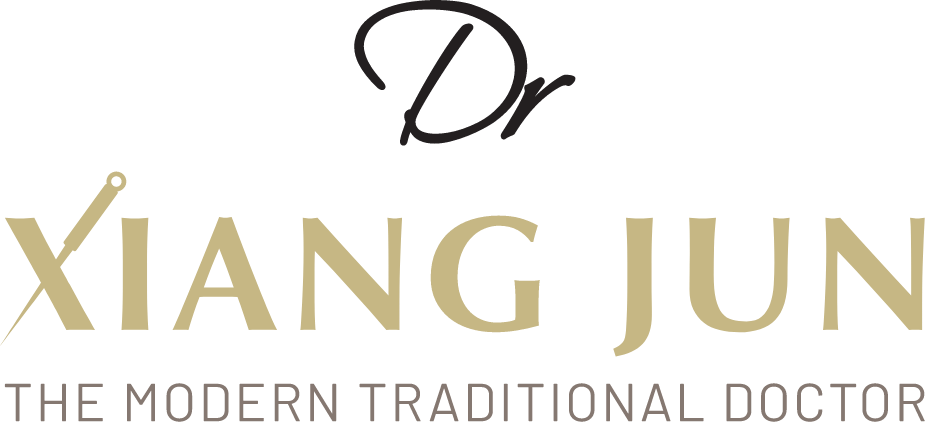Acupuncture for Pineal Gland Activation & Balance
What is Pineal Gland
The pineal gland is a small endocrine gland that is highly vascularized and secretory and it is located in the center of the brain.
It acts as a tremendous coordinator between molecular, hormonal, physiological, and chemical rhythmic orchestra.
It has another description as the “Seat of the Soul”.
Scientific Functions of Pineal Gland
The main function of the pineal gland is to produce melatonin which is a hormone that regulates our circadian rhythms and sleep-wake cycles and is also involved in cell protection and neuroprotection.
In addition, the pineal gland plays an important role in metabolism of bone, helps with mental health disorder such as Seasonal Affective Disorder, aids in the development of reproductive organs such as the testes and ovaries, regulates the menstruation cycle and other hormonal imbalance conditions including growth and thyroid functions.
Spiritual Functions of Pineal Gland
The pineal gland is also described as the “Seat of the Soul” and occupies the third eye chakra. The third eye is related to our inner wisdom, intuition and the ability to see and create beyond the physical level of the world.
Modern neuroscience has proven that pineal gland is not only the melatonin-secreting neuroendocrine organ which controls the circardian rhythm, but it also has mystical and energetic associations with spirituality.
The first specific reference to the pineal gland was given by Herophilus who wrote that the soul is in “kalamos.” The detailed description of the pineal gland was given by Galen in his work “De anatomicis administrationibus.” He believes that the soul flows in form of air from the lungs to the heart and then to the brain. The flow of air in the brain is controlled in valve-like fashion by the pineal gland.
Descartes and Andreas Vesalius (1514—1564 AD), the father of modern anatomy, also proposed the brain as the center of the soul. In his book The Passion of Sole, Rene Descartes described the pineal gland as the meeting place of the physical and spiritual worlds. He wrote that “The body and spirit not only meet there, but each affects the other and the repercussion extends in both directions.”
Damage to Pineal Gland
The complications of Pineal Gland damage can be vast. Some of the health conditions such as Alzheimer’s disease, rapid aging, headaches, migraines, schizophrenia, breast cancer, prostate cancer, insulin resistance and stroke are said to be linked to damage of pineal gland since it is a critical gland involved in the pathway of multiple glandular secretory pathways.
Pineal gland can be damaged by accident or developmental conditions such as pineal tumors, craniopharyngiomas, injuries affecting the sympathetic innervation of the pineal gland itself and rare congenital disorders that alter melatonin secretion. Most importantly, pineal gland can be damaged over time with poor lifestyle habits that result in the increased rate of calcification of the gland.
1) Reversed activity and sleeping hours
Normal circadian rhythms require humans to be working in the daytime and sleeping at night. The rhythmic production of melatonin which is normally secreted only during the dark period of the day is extensively used as a marker of the phase of the internal circadian clock. Working nights and sleeping days disrupt the circadian rhythm, stimulating the pineal gland to produce melatonin at abnormal odd hours not in sync with normal human physiology and can lead to the damage of the pineal gland in time to come.
Read more about Acupuncture for Time Abundance
2) Chronic stress
Chronic stress can lead to an abnormal melatonin release by pineal gland with an increase in cortisol production which can in turn damage the pineal gland.
3) Blu-light exposure
Glares from television, handphones and other electronics can interfere the release of melatonin by the pineal gland and enhance the adrenocortical hormone production during nighttime, which will destroy hormone balance and directly affect sleep quality and increase the rate of calcification of the pineal gland.
4) Fluoride exposure
Fluoride from dietary and environmental sources may concentrate in calcium-containing regions of the body such as the pineal gland. In adults, pineal gland fluoride concentrations have been shown to strongly correlate with the degree of pineal gland calcification.
5) Drug use
Psychotropic drugs, particularly antidepressants under the group of tricyclics and monoamine oxidase inhibitors affects the pineal gland function and melatonin concentration.
6) Aging
Aging is a process in which the pineal gland will naturally calcify. Stress, sleeping late, poor diet, emotional imbalances can result in increased rate of aging and degradation of pineal gland.
How Acupuncture helps to activate and balance Pineal Gland
As mentioned in my past blog about How TCM works scientifically, the insertion of thin needles into acupoints in the body, which are neurovascular nodes that contain a high concentration of sensory fibers, blood vessels, lymphatic vessels and mast cells restore homeostasis to bodily systems such as the immune, neurological, gastrointestinal and endocrine systems.
Pineal gland being part of the endocrine system will restore its normal functioning and activated when acupuncture is applied at the right acupoint and with the right technique.
One of the key acupoints used for pineal gland rebalancing is Yin Tang, located in the middle of the forehead between the eyebrows. It is also an important anatomical location where light enters the skull to activate the pineal gland. When stimulated in the right way, Yin Tang can balance the pineal gland to bring about physical well being and aids us in the right spiritual perception of the world.
Read about Acupoint Medicine Dan Zhong here on opening up new perspective.
Lifestyle Habits for Pineal Gland Health
1. Regulate your Sleep Pattern
Align the sleeping and waking times with the rise and fall of the sun. Install blinds and sleep in a dark room during nighttime. Try to sleep by 11pm.
2. Cut Away Blue Light & Leave Handphones out of Bedroom
Avoid installation of TV or leaving handphones in the bedroom. Blue light interferes with the release of melatonin from the pineal gland and even when the electronics are off, the blinking red or glowing green lights will still interfere with the pineal gland and electromagnetic waves are still being emitted.
3. Meditate
As the pineal gland is located in the sixth chakra which is the energy centre related to thoughts, intuition and ideas, meditation produces deep-brain waves which enhance the healing of the pineal gland, both physically and energetically.
4. Decalcifying Diet
A properly functioning pineal gland is synonymous with good health and wellbeing, while calcification which is the buildup of calcium phosphate crystals and deterioration of the pineal gland can impact wellbeing, leading to anxiety, depression, pessimism, overanalysis, confusion, delusions, paranoia and even some neurological disorders.
The diet we adopt plays a significant impact on the decalcification of the pineal gland. Reduce or abstain from processed foods, foods with additives, preservatives, chemicals, pesticides and always opt for organic, plant-based foods.
Further Reading:
Everything you need to know about Acupuncture
Natural Alternatives or Chemical Drugs?
TCM Explains and Heals Weird Habits that are Actual Signs of Mental Illnesses
Weight gain after IVF & How Acupuncture helps Weight Loss After IVF
Why Emotional Release is Important
Hormone Imbalance in Western Medicine and Traditional Chinese Medicine
Hidden Signs of Hormone Imbalance
Hormone Imbalanced Skin and How TCM and Acupuncture can Help Hormone Balance
Are you ashamed of having menses?
What should you not do before Acupuncture?
Testimonial for Digestive Health Bloatedness
Testimonial for Chronic Fatigue
Adrenal Fatigue and How It Can Be Treated
Is Chocolate Really Good as a Positive Emotional Builder?
How Acupuncture Help with Fatigue
Facial Acupuncture - How to differentiate the real deal from the fakers
Women’s Health: It is not normal to have cysts and fibroids
Men’s Health: Signs of Male Menopause
Inner Practice: Be Kind to Unkind People



